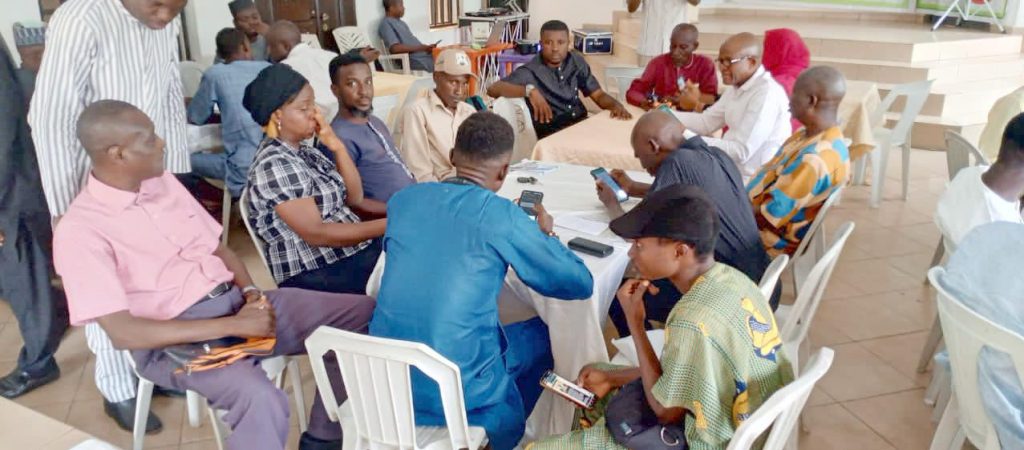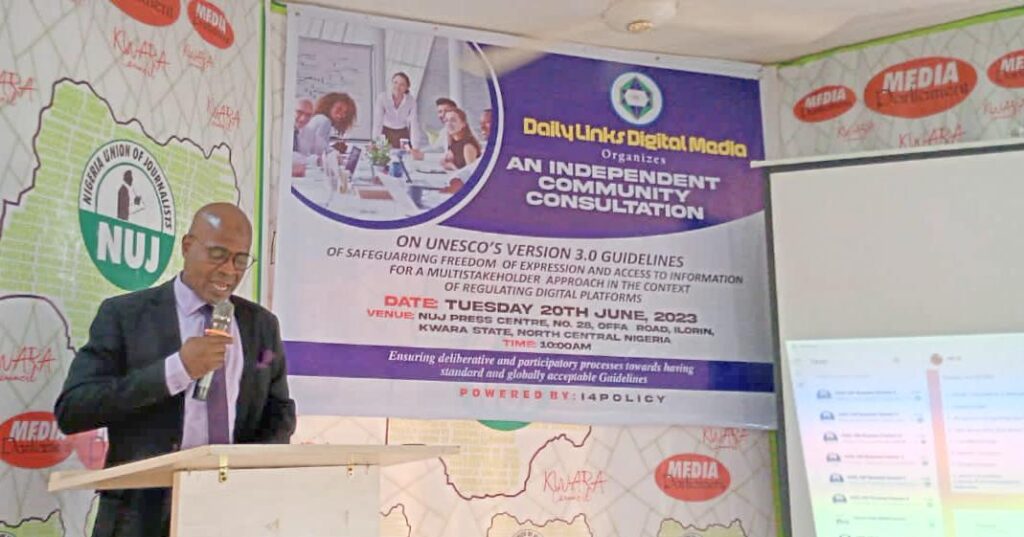By Omotayo Ayanda
The United Nations Educational, Scientific, and Cultural Organization (UNESCO), has released a groundbreaking set of “Guidelines for the Governance of Digital Platforms,” designed to protect freedom of expression and access to information in the digital age.
This release marks the culmination of a collaborative effort that began in September 2022, involving stakeholders from 134 countries in a series of extensive global consultations. With over 10,000 comments received, this project has been hailed as one of the most extensive consultation processes ever conducted by a UN agency.
The guidelines aim to create a regulatory environment where freedom of expression and access to information are at the core of digital platform governance.
They outline a set of responsibilities and roles for various stakeholders, including states, digital platforms, intergovernmental organizations, civil society, media, academia, and the technical community.
One of the primary goals of these guidelines is to assist policymakers in identifying legitimate objectives, human rights principles, and inclusive and participatory processes that can be considered in policymaking.
They will also be a valuable resource for regulatory and governance bodies as they navigate the implementation and evaluation of policies, codes of conduct, and regulations.

Group of participants at one of the Independent Community Consultations organised by Daily Links Digital Media, at the NUJ Press Centre, Ilorin.

Digital platforms, often at the center of online communication and information dissemination, will benefit from these guidelines by offering clear insights into best practices and responsible policies.
These recommendations are not limited to one sector but extend to other stakeholders, including civil society, in their advocacy and accountability efforts.
News media, known for their role in holding powerful actors accountable, will also find these guidelines invaluable in their ongoing efforts to ensure a free and open digital space.
The release of these guidelines is part of UNESCO’s commitment to the United Nations in developing the “Global Digital Compact,” a multistakeholder framework aimed at ensuring a free and secure digital future based on the UN Charter, the Universal Declaration of Human Rights, and the 2030 Agenda.
Furthermore, these guidelines echo the UN’s “Code of Conduct for Information Integrity on Digital Platforms,” currently in development, which seeks to guide Member States, digital platforms, and other groups in their efforts to make the digital space more inclusive and safer for all.
To mark this important milestone, UNESCO hosted the “Internet for Trust” conference in Paris in February 2023, during which the draft global guidelines for regulating digital platforms were consulted upon.
The guidelines aim to balance the protection of freedom of expression and access to information with addressing harmful content in line with international human rights law and standards online.
The development of these guidelines was a rigorous, evidence-based process, with commissioned studies playing a key role in shaping the recommendations.
The research included insights from whistleblowers and tech journalists, as well as an analysis of international law standards related to platform regulation.
UNESCO, however, extended its gratitude to all Member States, organizations, and individuals who contributed to the development of these guidelines. Their invaluable input and active engagement have been instrumental in creating a global effort with broader access, diversity, and participation.
These guidelines represent a significant step toward ensuring that digital platforms operate in a manner that upholds human rights and promotes freedom of expression and access to information.
As the digital landscape continues to evolve, these guidelines provide a framework for responsible and inclusive governance.
